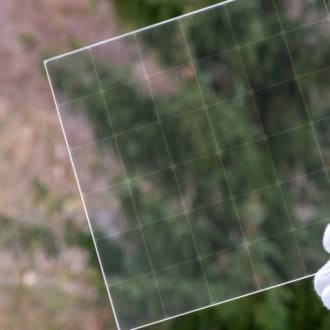The Best of Freethink
10+ most popular Freethink articles, as voted by our community.
Trending
These are currently making the rounds on Refind.
Fusion startup plans to shoot space junk with lasers
Japanese startup EX-Fusion plans to test whether lasers it is developing for nuclear fusion can remove space junk from orbit.
Freethink on Chronic Pain
An old anti-psychotic offers a new way to treat chronic pain
Researchers have found that an old anti-psychotic drug may have implications for chronic pain and cancer.
Freethink on Future Cities
See the world's first floating city: OCEANIX Busan
If the world's first floating city is a success, other coastal metropolises could use it as a blueprint for adapting to rising sea levels.
«The world’s first floating city is being built in South Korea.»
Coastal cities created 40 Manhattans’ worth of new land since 2000
The first global assessment of land reclamation found that people have added 900 square miles of land to Earth’s coasts this century.
Freethink on Future Of Cars
World’s whitest paint is now thin enough for cars, planes
A new, thinner version of the world’s whitest paint could slash the need for climate-harming air conditioning in cars, airplanes, and more.
Startup’s bladeless flying car is designed to reach Mach 0.8
Jetoptera is designing quieter, safer vertical take-off and landing (VTOL) vehicles with bladeless propulsion systems.
Freethink on Minecraft
Minecraft players built a massive library for censored news
Minecrafts’s Uncensored Library is exploiting a loophole in surveillance technology to sneak the news past government censorship.
Freethink on Psychedelics
This company is using beer yeast to make psilocybin
Brewing the magic in Psilocybe cubensis is difficult at scale. One Danish company thinks beer yeast may be the answer.
Freethink on Renewable Energy
An accidental discovery could change the world
A surprise discovery by Drexel University scientists could unlock an elusive technology: lithium-sulfur batteries.
«these batteries will weigh a third of the equivalent lithium-ion batteries and have twice their lifespan!»
Freethink on Robotics
Farming Robot Kills 100,000 Weeds per Hour With Lasers
Carbon Robotics’ Autonomous Weeder is a smart farming robot that identifies weeds and then kills them using high-power lasers.
«Weeds compete with plants for space, sunlight, and soil nutrients. They can also make it easier for insect pests to harm crops, so weed control is a top concern for farmers.»
Tiny robots completely clear out deadly pneumonia infection in mice
Researchers have created microscopic robots capable of clearing pneumonia from the lungs of mice.
Freethink on Solar Energy
Transparent solar panels could soon turn windows into energy harvesters
A new solar panel design can efficiently convert light into electricity, while still allowing almost 80% of incoming light to pass through.
Popular
These are some all-time favorites with Refind users.
This strange fruit could feed the world during climate change
Ensuring food security over the coming century will be a major challenge. A new study suggests that breadfruit may be the answer.
MIT proposes Brazil-sized fleet of “space bubbles” to cool the Earth
A raft of “space bubbles” could be used to reverse global warming, according to an MIT group's solar geoengineering proposal.
What full-color night vision looks like now
UC Irvine researchers have used deep learning AI to accurately create full-color images from night vision images.
Is it time for a new American city?
American towns and cities are no longer able to adapt to new residents. Is building new cities the solution to this problem?
«? A city which has nobody, even if it has roads and schools, is very unattractive. If you are a teacher and say ‘there will be a new school there, I want to move there’, but when you move there is nobody there, so nobody will pay your salary, how would you buy housing? And if there are no schools running, families will not move»
$26K solar car now has a factory — and will roll out this year
Solar car startup Aptera has purchased a factory where its vehicles will be carried from station to station by autonomous robots.
What is Refind?
Every day Refind picks the most relevant links from around the web for you. is one of more than 10k sources we monitor.
How does Refind curate?
It’s a mix of human and algorithmic curation, following a number of steps:
- We monitor 10k+ sources and 1k+ thought leaders on hundreds of topics—publications, blogs, news sites, newsletters, Substack, Medium, Twitter, etc.
- In addition, our users save links from around the web using our Save buttons and our extensions.
- Our algorithm processes 100k+ new links every day and uses external signals to find the most relevant ones, focusing on timeless pieces.
- Our community of active users gets the most relevant links every day, tailored to their interests. They provide feedback via implicit and explicit signals: open, read, listen, share, mark as read, read later, «More/less like this», etc.
- Our algorithm uses these internal signals to refine the selection.
- In addition, we have expert curators who manually curate niche topics.
The result: lists of the best and most useful articles on hundreds of topics.
How does Refind detect «timeless» pieces?
We focus on pieces with long shelf-lives—not news. We determine «timelessness» via a number of metrics, for example, the consumption pattern of links over time.
How many sources does Refind monitor?
We monitor 10k+ content sources on hundreds of topics—publications, blogs, news sites, newsletters, Substack, Medium, Twitter, etc.
Can I submit a link?
Indirectly, by using Refind and saving links from outside (e.g., via our extensions).
How can I report a problem?
When you’re logged-in, you can flag any link via the «More» (...) menu. You can also report problems via email to hello@refind.com
Who uses Refind?
450k+ smart people start their day with Refind. To learn something new. To get inspired. To move forward. Our apps have a 4.9/5 rating.
Is Refind free?
Yes, it’s free!
How can I sign up?
Head over to our homepage and sign up by email or with your Twitter or Google account.
















